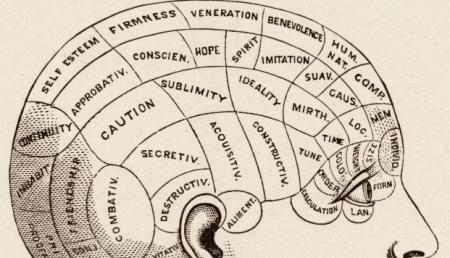
Florida State University College of Medicine Associate Professor Antonio Terracciano joined a team of researchers from the United States, United Kingdom and Italy and discovered as a result of a study that the shape of our brain can provide surprising clues about how we behave and our risk of developing mental health disorders.
These researchers looked at differences in the anatomy of the cortex (the outer layer of the brain) as indexed by three measures -- the thickness, area, and amount of folding in the cortex -- and how these measures related to the five major personality traits.
The traits include neuroticism, the tendency to be in a negative emotional state; extraversion, the tendency to be sociable and enthusiastic; openness, how open-minded a person is; agreeableness, a measure of altruism and cooperativeness; and conscientiousness, a measure of self-control and determination.
"Evolution has shaped our brain anatomy in a way that maximizes its area and folding by reducing thickness of the cortex," said senior author Luca Passamonti from the Department of Clinical Neurosciences at the University of Cambridge. "It's like stretching and folding a rubber sheet -- this increases the surface area, but at the same time the sheet itself becomes thinner. We refer to this as the 'cortical stretching hypothesis.'"
"Cortical stretching is a key evolutionary mechanism that enabled human brains to expand rapidly while still fitting into our skulls, which grew at a slower rate than the brain," Terracciano added. "Interestingly, this same process occurs as we develop and grow in the womb and throughout childhood, adolescence, and into adulthood: The thickness of the cortex tends to decrease while the area and folding increase."
Researchers found that high levels of neuroticism, which may predispose people to develop neuro-psychiatric disorders, were associated with increased thickness as well as reduced area and folding in some regions of the cortex, such as the prefrontal-temporal cortices. In contrast, openness, which is a personality trait linked with curiosity, creativity, and a preference for variety and novelty, was associated with the opposite pattern: reduced thickness and an increase in area and folding in some prefrontal cortices.
